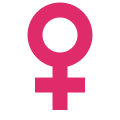Political rights
In 2002, an amendment to the Constitution of Bahrain gave women in Bahrain the vote and the right to stand in national elections, the second country in the GCC to do so. [8] [9] Two years previously Mariam Al Jalahma, Bahia Al Jishi, Alees Samaan and Mona Al-Zayani had been the first four women appointed to the Consultative Council. [10]
Women first voted and stood at municipal elections held in 2002, at which all 31 women running in a field of more than 300 candidates lost. [8]
Also, no women were elected at the 2002 Bahraini general election. [11] In response to the failure of women candidates, six were appointed to the Shura Council, which also includes representatives of the Kingdom's indigenous Jewish and Christian communities. [12] Dr. Nada Haffadh became the country's first female cabinet minister on her appointment as Minister of Health in 2004.
The quasi-governmental women's group, the Supreme Council for Women, trained female candidates to take part in the 2006 Bahraini general election. In 2006, Lateefa Al Gaood became the first female MP after winning by default. [13] The number rose to four after the 2011 by-elections. [14]
When Bahrain was elected to head the United Nations General Assembly in 2006 it appointed lawyer and women's rights activist Haya bint Rashid Al Khalifa President of the United Nations General Assembly, only the third woman in history to head the world body. [15] Female activist Ghada Jamsheer said "The government used women's rights as a decorative tool on the international level." She referred to the reforms as "artificial and marginal" and accused the government of "hinder[ing] non-governmental women societies". [16] In 2008, Houda Nonoo was appointed ambassador to the United States making her the first Jewish ambassador of any Arab country. [17] In 2011, Alice Samaan, a Christian woman was appointed ambassador to the United Kingdom. [18]
At the 2014 Bahraini general election, a small number of women were elected to both houses. [19]



